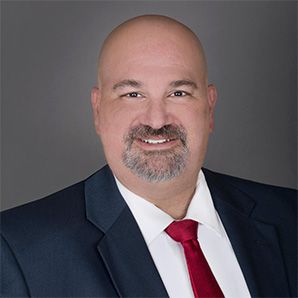The Significance of Implied Consent in a Nevada DUI Stop

When certain prerequisites are met, specific Nevada laws provide that all drivers give implied consent to breath, blood, urine, and other tests to determine whether a driver was under the influence of alcohol or a controlled substance while in control of a vehicle. Every Nevada driver, regardless of their state of residence, should understand how these laws apply during a DUI stop or arrest. Refusing DUI breath and blood tests can complicate the ability to defend against DUI charges and have other significant consequences as well.
Substance Tests During a DUI Stop and After a DUI Arrest
A DUI (Driving Under the Influence) stop and arrest may result in two different types of tests that are subject to the Nevada implied consent laws. The first is a preliminary breath test, or PBT. The second is an evidentiary breath or blood test. Under state statutes, drivers consent to both types of tests when they drive on Nevada highways, roads, and streets.
Preliminary Breath Test
When police pull over a driver on suspicion of DUI and have reasonable suspicion that the driver is under the influence of alcohol or a controlled substance, state law authorizes the officer to ask the driver to take a preliminary breath test (PBT), which measures the amount of alcohol in the driver’s breath. The purpose is to determine whether there is probable cause to arrest the driver for a DUI violation.
State law requires a driver to take the PBT, but a driver cannot be forced to take the test. Refusal to take the test is not admissible in any subsequent criminal proceeding, but a refusal may result in arrest for DUI and administration of an evidentiary test.
Evidentiary Breath or Blood Test
A second statutory provision creates implied consent to evidentiary breath or blood testing (EBT) after an arrest on a DUI charge. The driver has a choice of taking a breath or blood test after a DUI arrest. Refusal results in revocation of the person’s driving privileges.
If you are arrested for DUI, police officers are required to advise you that your driver's license will be revoked if you refuse to take the evidentiary breath or blood test. If you refuse, your license will be revoked for one (1) year for a first refusal or revoked for three (3) years if you have a previous revocation within seven (7) years due to a test refusal. Even if you change your mind about taking the test after initially refusing, your license will still be revoked based on the refusal. You may be asked to take as many as four (4) tests to get consistent results. If this happens, the fourth test must be a blood test. If you refuse to take any of the tests, your license can be revoked.
Consequences of Refusing to Take an Evidentiary Test
Following refusal to take an evidentiary test, the police officer may secure a warrant to authorize the police to take a blood sample against your will. Law enforcement may use reasonable force, including restraints, to administer the blood test.
If you are arrested, you are allowed to have a qualified person of your own choosing administer an evidentiary breath or blood test. You must pay for the test yourself. An independent test does not replace the police-administered test. Your license will still be revoked if you refuse the police test, even if you have your own test administered.
In addition to having your license revoked for refusal to take the evidentiary test, prosecutors may use your refusal as evidence in a DUI trial and as evidence in a DMV hearing on your license revocation. In either case, your refusal can be considered as an indication that you were trying to conceal being under the influence.
DMV License Revocation
If your license is revoked for refusing an evidentiary test in a DUI case, the DMV proceeding on the license revocation is completely separate from the criminal proceeding on the DUI charge. Regardless of what happens on the DUI charge, you may request a DMV hearing to challenge the revocation. DMV hearings are administrative proceedings, rather than court hearings.
Your refusal to take the evidentiary test can be used against you in the DMV hearing. The administrative judge may impose the license revocation even if your DUI charges were eventually dismissed or your blood test results confirmed that you were not under the influence of alcohol or drugs. The DMV treats test refusal as an offense separate from DUI. License revocation is the penalty for refusing to take the test, not for the DUI charge.
Out-of-State Residents
Even if you reside out of state and are only visiting Nevada, you are subject to the state's implied consent laws. If you refuse to take an evidentiary test in Nevada after you are arrested for DUI, you may face license revocation or suspension in your state of residence. Most states follow an agreement called the Interstate Driver's License Compact, under which states penalize drivers for out-of-state offenses as if the offense occurred in the driver's home state.
Schedule a Free Consultation with an Experienced Las Vegas DUI Defense Attorney
If you were arrested for DUI or DUID, you should contact a lawyer at the earliest possible time. Your best chance of minimizing the consequences is to have a skilled DUI defense attorney represent you. Even if you refused to take an evidentiary test, your attorney can aggressively represent you in the case.
If you face a DUI or DUID charge in Las Vegas, Henderson, or elsewhere in Clark County, Las Vegas DUI attorney Joseph Gersten will evaluate your case based on his extensive criminal defense, investigative, and analytical experience. Your initial consultation is free-of-charge. Call 702.857.8777 or complete the online contact form to schedule an appointment


